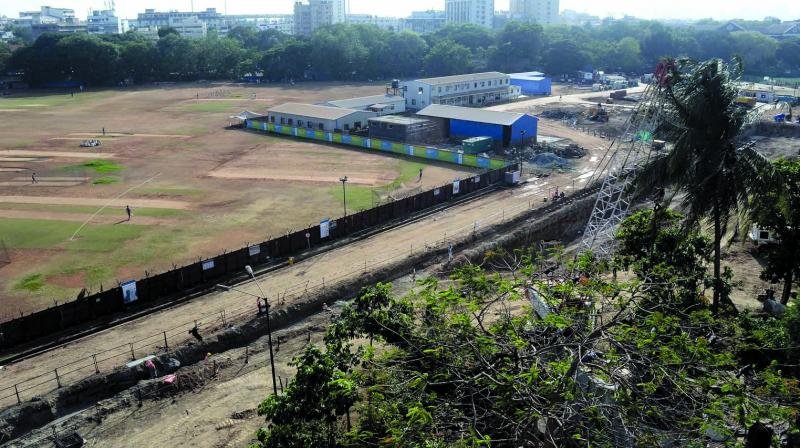Swedish Author Brings Back The Forgotten Gandhi
Scotches rumour of origin, restores his Parsi identity.
Feroze Gandhi, the founder of the Gandhi dynasty, has historically been the least-known member of the dynasty.
It’s intriguing that despite benefiting from the charisma of Feroze’s surname, the Nehru-Gandhis did little to commemorate the rebel that Feroze was. But Feroze will finally get the space he long deserved, thanks to a political biography that has been written by Swedish author and journalist Bertil Falk.
 Mr. Falk, 83, who began as a radio presenter at 12, is a seasoned follower of Indian politics and was previously noted in Europe thanks to his political interviews in India and for extending support to the research work of Katherine Frank’s reputed biography of Indira Gandhi.
Mr. Falk, 83, who began as a radio presenter at 12, is a seasoned follower of Indian politics and was previously noted in Europe thanks to his political interviews in India and for extending support to the research work of Katherine Frank’s reputed biography of Indira Gandhi.
The book begins by taking on a long lasting rumour that Feroze was indeed a Muslim and then goes on to restore Feroze’s Parsi identity: “There is a bizarre rumour about Feroze’s origin.”
There were inherent similarities and contradictions between Feroze and Indira plus the political differences that cut into the marriage. “Feroze did not see India grow but finally, it was his vision of India that triumphed when Indira Gandhi was defeated after Emergency,” Mr. Falk told The Hindu.
Feroze, the author said, had an early hint of Indira’s strong leadership style and warned her not to succumb to the temptation of authoritarianism starting from 1955, when she became a member of the Congress Working Committee (CWC). “Feroze and Indira fought hard when Nehru persuaded by Indira sacked the communist government of Kerala in 1959,” Mr. Falk said.
The political non-fiction which is now with a leading literary agent in India is going through the stage of submission but already talks of film rights and documentary rights are being discussed by the author and the agent. A unique aspect of the book will be the detailed treatment of the Indira-Feroze love affair in London which marked the happiest part of Indira Gandhi’s life.
While a substantial part of the 30-chapter book will deal with Feroze Gandhi and his India, a good number of them will deal with more controversial aspects like the bitter rivalry that Feroze endured with Nehru’s secretary M.O. Mathai. The chapter on Mathai is expected to grab a lot of attention due to the rumours surrounding the power that Mathai enjoyed in Teen Murti Bhavan.
The book also brings out the lonely and troubled life of Feroze which was born out of complex domestic and public conditions. The situation became so serious that Feroze in the last decade of his life developed certain mental blocks about his family, that would often prevent him from joining his wife and his sons Rajiv and Sanjay. His domestic turmoil, however, did not prevent Feroze from playing the role of a Parliamentarian and he piloted the Parliamentary Proceedings (Protection of Publication) Act 1956 which empowered media as well as the members of the Indian parliament. During the Emergency era, the Act was amended but was brought back in 1977.
Feroze Gandhi passed away in 1960. Less than six years later, Indira Gandhi became India’s prime minister. Bertil Falk’s book on Feroze Gandhi will convince the readers that a great deal of political training and acumen that Indira displayed came from none other than Feroze and it is not possible to appreciate India’s post-independence history without going through his troubled life.
Mr. Falk said that at an age when India is rediscovering non-Nehru leaders like Ram Manohar Lohia and Deen Dayal Upadhyay, it is time to appreciate that the big opponent of Nehru was his son-in-law, Feroze Gandhi who needs to be rehabilitated in the twenty-first century India.
Excerpts from Chapter 9: Triumph of Will
(M.O. Mathai vs Pupul Jayakar on Feroze-Indira match)
Certainly not the most popular man in India. But what does Mathai say about Feroze, Kamala and Indira? “Towards the end of December 1935 at Badenweiler in Germany, Kamala Nehru had a talk with her husband in the presence of their common friend Nanu (A.C.N. Nambiar). Death for Kamala was only two months away. She said that she was profoundly worried about the future of Indira. She expressed her strongest disapproval of the possibility of Indira marrying Feroze Gandhi. She did not consider Feroze Gandhi a stable person; neither did she think that he was in the least qualified to go into any worthwhile profession and support Indira.”
It is a strong statement and Mathai continues: “She spoke with emotion and became tired. With some effort she managed to add, ‘I do not want my child to be unhappy all her life.’ Nehru spoke in a soothing and reassuring manner and said, ‘You leave the matter to me.’ A few minutes later Nehru went out.”
*********
As we know, Feroze was special. He was different from most other people. He did not fit into any specific category and in India in those days you were supposed to fit into at least some kind of category. He was one of a kind. Kamala must have recognised that side of him as well. I do not think that we at this stage are in the position to discount the possibility that Mathai is right and all others are wrong.
If we turn to Pupul Jayakar, who was a friend of Indira Gandhi, and who otherwise is very well-informed in many respects, we will find that when it comes to Kamala and the marriage between Feroze and Indira, she is very vague and speculative about what Kamala Nehru and Feroze talked about in Badenweiler before Kamala died on February 28, 1936.
“Did they discuss Indira’s future? Did Kamala make Feroze promise that he would protect Indira, marry her if possible? Kamala was aware of the circumstances that made it difficult for Jawaharlal to take care of an adolescent daughter, but she must have also been aware that a marriage between her daughter and Feroze would lead to explosion within the Nehru family.”





